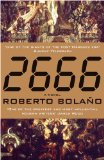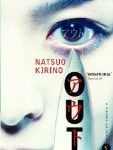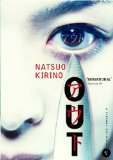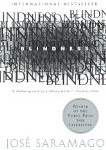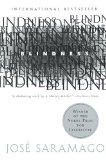Steph and Claire are hosting a read-along for the highly acclaimed book, 2666, by Chilean author Roberto Bolaño. The novel is 900 pages long, and divided into 5 parts. We are reading one part a month, for the next five months.
Here are my thoughts on Part 2: The Part About Amalfitano
WARNING: SPOILERS
As the title suggests this section is all about Amalfitano, and other than the fact it is set in the town the critics visited searching for the German writer, it has little relation to Part 1.
Amalfitano is raising his daughter, Rosa, after Rosa’s mother, Lola has walked out on them. Amalfitano receives letters from Lola occasionally in which she tells him of her travels round Europe and her obsession with a Spanish poet. Lola eventually returns and confesses that she is dying of AIDS.
This part was much easier to read than Part 1, but it made me feel incredibly stupid. There were so many references to poets/philosophers/other people I’d never heard of that much of it went over my head. About half way through this section Amalfitano discovers a geometry book in his house that he has never seen before. He studies it for a while and then decides to hang it on the washing line:
…to see how it survives the assault of nature, to see how it survives this desert climate,
Why? I really didn’t understand. He then goes on to draw geometric shapes, with various people listed at the apexes. I have no idea why! Amalfitano’s attempts to explain it just confused me even more:
The B that appeared at the apex of the triangle superimposed on the rectangle could be God or the existence of God as derived from his essence.
By the time he lists the three columns of names I have decided that it is all beyond me, and so I’ll just ignore that until someone more knowledgeable than me explains it all.
As with part 1, this section contains numerous sexual and homophobic references and at one point Lola has sex in a cemetery. Again I found this all a bit weird. I find myself just shaking my head at this book. I just don’t seem to understand where it is coming from.
I really hope that it comes together soon, as it is all a bit weird for me.
![]()
Do you think you understand what the author is trying to achieve with this book?
Is it mystifying you, or are you really enjoying it?

